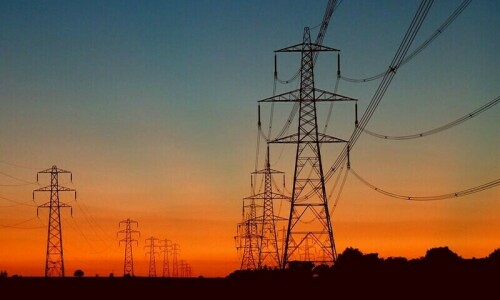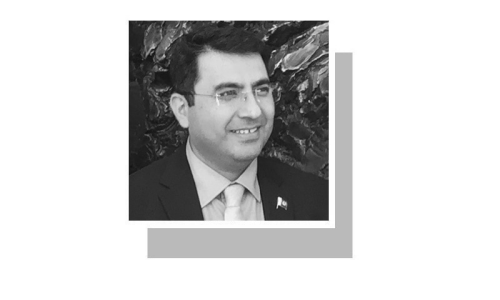MOSCOW, Feb 18: President Vladimir Putin said on Friday Russia was convinced that Iran had no intention of making nuclear weapons, but warned Tehran must "strictly respect" rules to make sure it does not do so in exchange for Russian help in developing its civilian nuclear power programme.
"The latest steps on Iran's behalf persuade us that Iran has no intention of building an atomic weapon," Mr Putin said as he greeted Iran's top nuclear negotiator, Hassan Rowhani, at the Kremlin. "Consequently, we will continue to cooperate with Iran in all fields, including in nuclear energy," the Russian leader said.
Putin said he had received and intended to accept an invitation to visit Iran, but stressed that Russia remained "deeply convinced" that the spread of nuclear weapons constituted a serious threat to world security and would not want to see Iran attempt to acquire the bomb.
"We hope that Iran will strictly respect all commitments it has made bilaterally with Russia and internationally," he stated. Putin's comments came a day after Iran announced that it had agreed to sign on Feb 26 an agreement under which it would be obliged to return all spent nuclear fuel from civilian reactors to Russia.
Iran has stated that its nuclear ambitions were limited strictly to civilian use. It has however in the past used various arguments to avoid signing the agreement to return spent nuclear fuel, including that it was too dangerous to ship and that Moscow was charging too much for the fuel.
The absence of the agreement has been, from Russia's point of view, the main impediment to completion of an 800-million-dollar project led by Russia to build a nuclear power plant at Bushehr in southern Iran.
Moscow and the West both fear Iran could reprocess the spent fuel delivered from Russia by upgrading it through centrifuges to either make a weak "dirty Bomb" or an actual nuclear weapon.
The United States and Israel have jointly launched an international campaign against the Bushehr project, but Moscow has countered that it would make sure the plant remained harmless to protect its own security interests.
The United States has said it believes Iran is using its civilian nuclear programme as cover for an effort to acquire nuclear weapons and has demanded that Iran foreswear any uranium enrichment activities needed to produce weapons-grade nuclear material.
The United States has pointedly refused to rule out military action against Iran to make sure it does not acquire a nuclear weapons capacity, and President George Bush said on Thursday that Washington would back Israel if it were threatened by Iran.
"In that Israel is our ally and in that we've made a very strong commitment to support Israel, we will support Israel if her security is threatened," Mr Bush said at a news conference in Washington.
In contrast to the tough public rhetoric from the United States, Germany, Britain and France - the "EU-3" - have been pursuing diplomatic efforts to persuade Tehran to accept outside controls on its nuclear programme to ensure it remains peaceful.
Mr Rowhani told Mr Putin that Iran believed Russia had a role of "great importance" to play in resolving the dispute over Iran's nuclear programme. The Iran nuclear issue was on the official agenda of subjects to be discussed at a summit between the United States and the European Union in Brussels next week, an EU source said on Friday. -AFP















































Dear visitor, the comments section is undergoing an overhaul and will return soon.